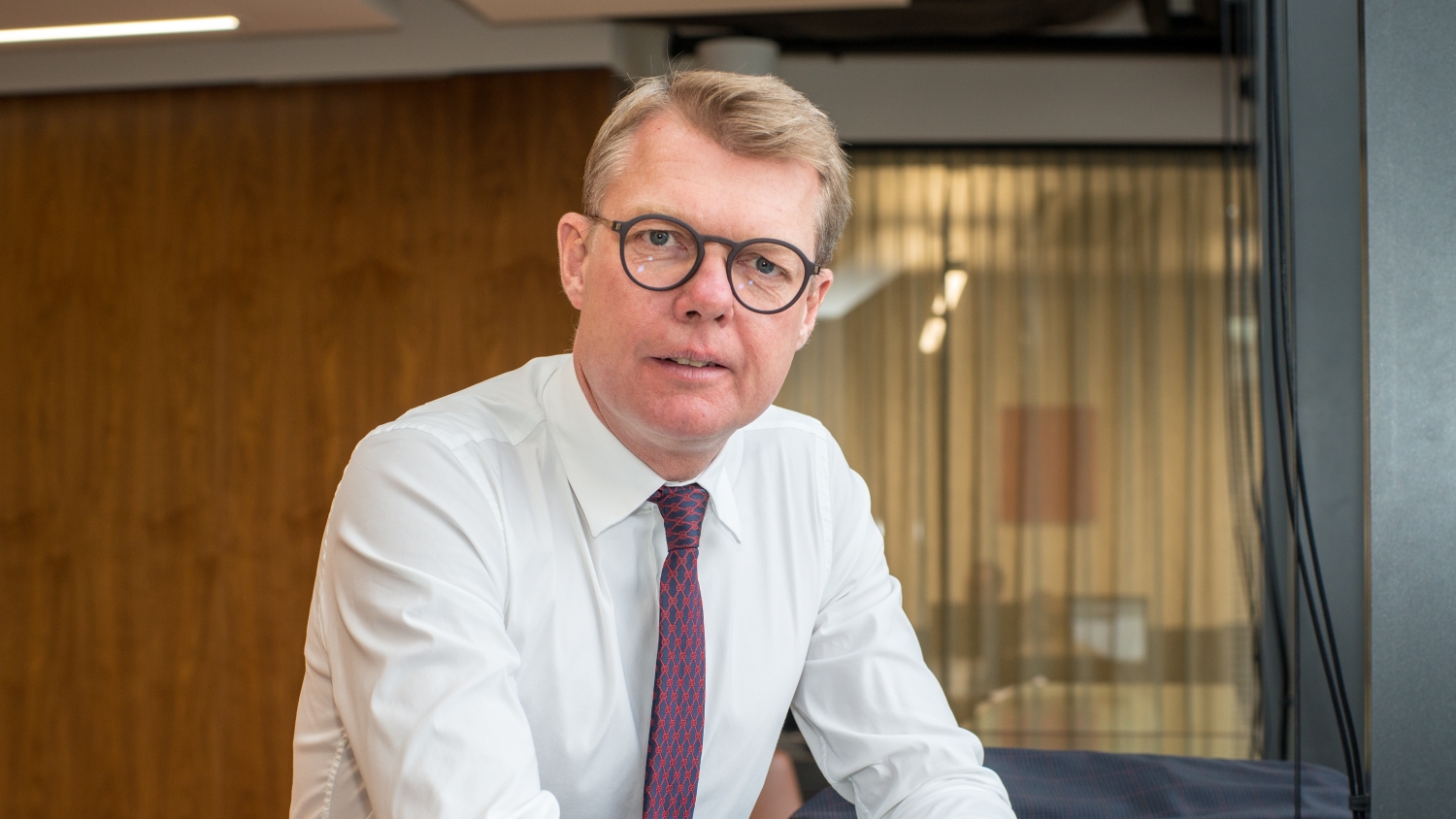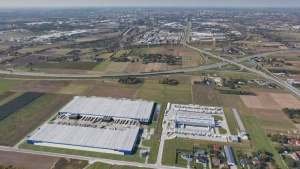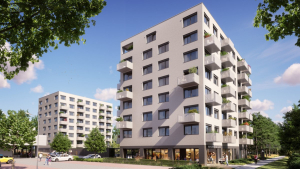
The CEO of CTP believes that logistics is a future-proof investment product that can make or break a company's success. The developer is moving ahead with full speed and hopes to increase its portfolio to 8 million sqm within the next few years. Remon Vos talked to Property Forum in Budapest about current plans and the future of industrial/logistics as an asset class.
The future of logistics as an asset class will be one of the key topics of Prague Property Forum 2018. This event, co-organised by Property Forum and RICS, will bring together over 200 industry experts from Central Europe.
What are the main trends that are changing the way logistics property is being used?
Logistics and distribution are becoming a more important part of today’s economy. A logistics centre is not just a box where you store things, but a tool that helps companies make sure that their product is looked after and ultimately ends up at the right place at the right time in the most efficient way. To ensure that warehouses and distribution centres need to be built in the right location with proper accessibility to traffic and labour and with the right facilities for labour. Together with our tenants, we have reinvented warehousing and logistics in a very different way in order to come to an ultimate building. We call this the 2020 edition of warehousing. These are optimal buildings with low maintenance and repairmen costs and with extremely low utility consumption. Previously buildings were built with a height of 7-8 metres, currently, they are built at 12-metre height. This way, by occupying the same square-metres of land, tenants can store more products in a cost-efficient way.
Have these changes affected logistics’ position as an investment product?
The industrial and logistics market, which used to be underestimated and deemed less interesting, is now a serious industry that appeals to investors. The industrial/logistics asset class is currently preferred over every other asset class in Europe.
Do you think that this will last?
I think this is not just a trend, investors are now realising that this is a real asset class with long-term rent contracts which create long-term value. So for investors to buy into it, that makes sense. Compared to other asset classes, logistics is more essential to competitiveness. An office building, for example, is important to me but it’s not key to my operations. I can work from this hotel, from another office building or from everywhere else and if my competitor leases a newer office building that in itself won’t give them a significant advantage. But if I use a brand new logistics centre and my competitor uses an older building, I’m more competitive because I can store more products in my building, I need to spend less money on energy and repairs and I’m closer to the clients. This makes a difference in whether I’m successful or not.
Would say that it’s a future-proof investment product?
Obviously, I would, we believe very much in this industry and we are long-term owners ourselves. It’s also good to see that other investors, including different pension funds from all over the world, are now looking to invest in these assets as they create a long-term income and more importantly as they contribute a lot to the operations of the companies that lease it. Another thing is that I believe that replacement costs for these properties are going to be higher in the future. Land is scarce and we understand stand this, that’s why we continue to buy land.

Click on the picture above to find out more about our event in Prague where you can learn about the future of logistics.
Do you see any new locations emerging within the CEE region?
We have a few start-ups in Poland in Slovenia, but we continue to focus on our core countries: the Czech Republic, Slovakia, Hungary and Romania. We currently have a land bank that allows us to grow from 5 million to 8 million sqm of leasable area within the coming three to five years. I believe very much in focus and concentration, so I don’t think we’re going to be entering new countries.
How do you see the competition between logistics developers in CEE?
It’s a pleasure for us to compete with companies, such as Prologis, that are professional and know their business quite well. What differentiates us from our competitors is that we are long-term investors and we don’t sell anything. Also, we are not only active in the areas surrounding the capitals, but in regional cities as well. Other developers are barely present in the regions (at least in Hungary or Romania), which is surprising to me. We believe in these locations because they have skilled labour force and are close to certain industries. We are privately owned, CTP is not a listed company, so I don’t have to explain to my shareholders where Tatabánya or Sibiu is.
You have also completed a few projects outside of logistics. Do you plan to continue these ventures?
Industrial/logistics is our core business, but I hope that in the coming years we’ll have to chance to get involved in some other developments which could include student housing, hotel or mixed-use. We’ve dived into these areas in the Czech Republic, in Brno and Ostrava. We have established a presence and a local team there, which means that we have had an opportunity to understand these markets. Our non-logistics developments are a result of requests from existing logistics tenants that we wanted to be a property partner for. So if they encountered challenges in the labour market, we built student housing to attract more university students. If they wanted to set up an office in the city where they are already present as industrial/logistics tenants, we built an office building.
So if a client were to come to you with a similar request in another county, would you be open to it?
I think we need to go step by step. Our core business is still industrial and logistics, but if we are serious about a location and an opportunity was to arise, we would definitely have a good look at it.



